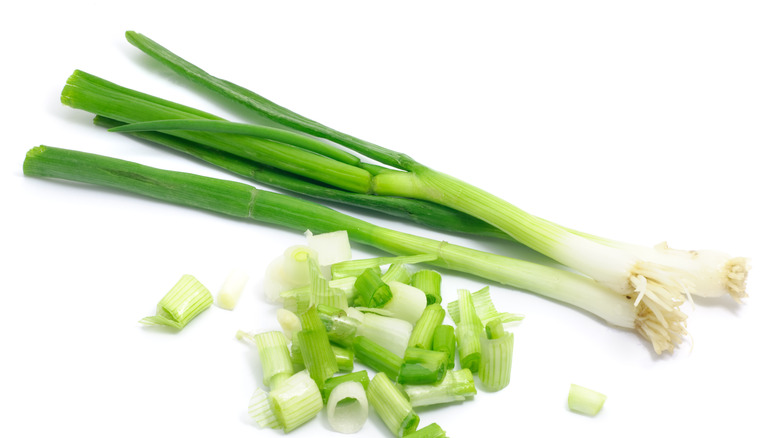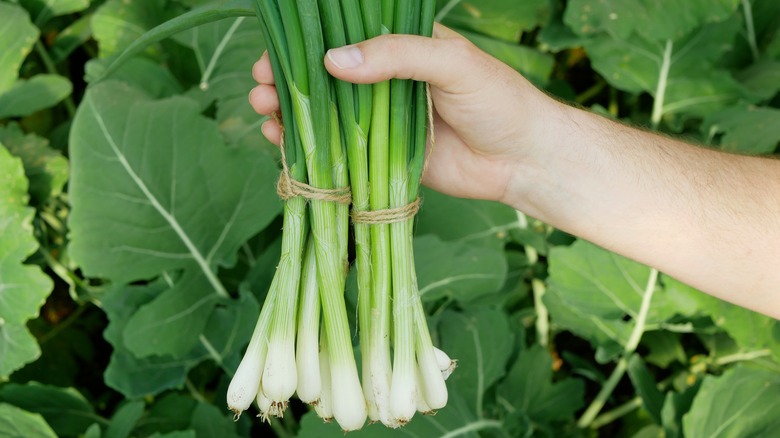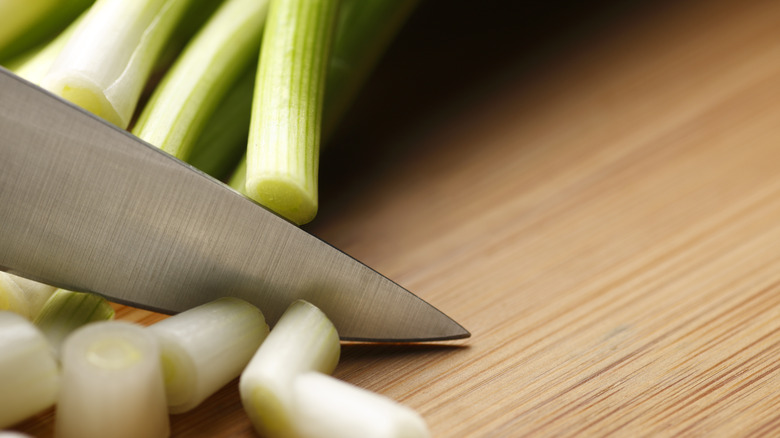Why You Should Always Avoid Freezing Scallions
Whether you call them scallions, green onions, or spring onions, few ingredients provide a meal with such an instant, crunchy pop as this ingredient does. This is probably why dozens of cuisines worldwide use them in their dishes, from Mexico to India and almost everywhere in between. They are also a great time saver if you want an allium taste but don't want to chop up a whole onion since a little bit of scallions can go a long way in terms of flavor.
This presents somewhat of a problem because they're not usually sold in individual bulbs but in big bunches. So how do the food waste-conscious among us keep them from going bad? Should we freeze them? The answer is a resounding no. When you freeze green onions, their texture goes right out the window. In order to understand why, it's important to understand what actually happens when you freeze food.
Freezing green onions damages their cell walls
The process of freezing solid food involves the water in them forming ice crystals. These crystals have the inevitable effect of damaging the cell walls around your food because as water turns to ice, it expands. It's for this reason that you want your items to freeze as quickly as possible, which only gives smaller crystals the chance to form, thus minimizing damage to the texture. In the case of something like fish or chicken, you probably won't notice much of anything in the way of changes, but scallions are a different story.
The problem is that green onions simply have too much water in them to freeze well and their more solid components simply aren't solid enough to hold up to what happens when that water is suddenly occupying more space. The end result is that while the taste doesn't really change and they're perfectly safe to eat, the texture goes all wrong. The white parts of the onion (the bulb) tend to go soft, while the green parts (the leaves) toughen up. The same general principle applies to other vegetables like cabbage, lettuce, and cucumbers, too.
You can still use scallions if you freeze them, just be smart about it
Let's say you ignored this advice and decided to freeze scallions anyway because you just couldn't bear to let them go to waste. Can you still use green onions for anything at that point? Sure, although you should be careful in how you do so.
We recommend not using them as a topping for a dish since the texture changes mean you'll be robbed of that satisfying crunch. You can, however, still use them as a mixed-in component in a fully cooked dish like a stew or a sauce where texture isn't a major concern, as their flavor won't typically be heavily affected.
In general, whether you freeze scallions is up to you, but it's not highly recommended. The best way to keep them at their peak for as long as possible is to put them in the fridge in sealed plastic bags with paper towels, ensuring the right level of moisture that can keep them fresh for over a month.


